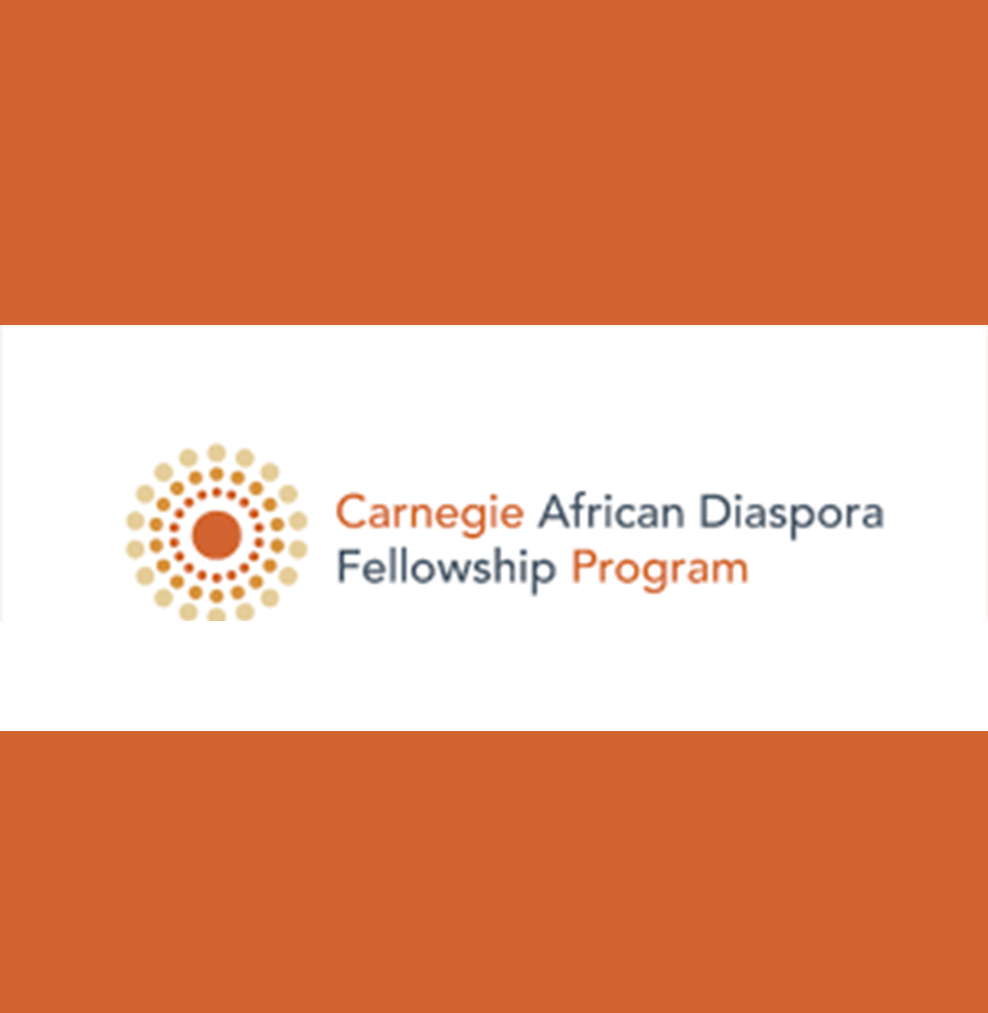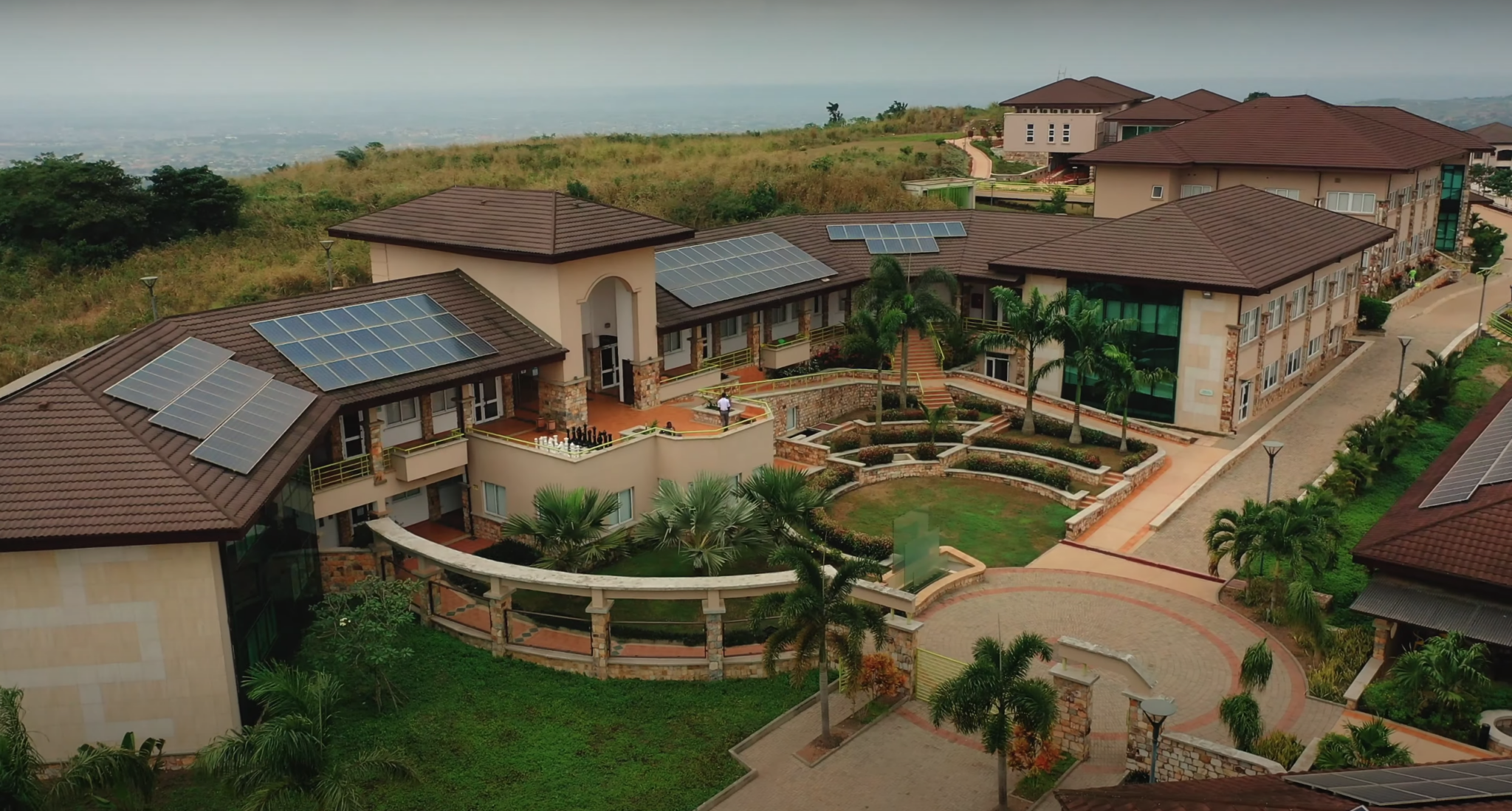Ashesi University is focused on developing global relationships and continues to pursue various opportunities for institutions around the world to visit Ghana and connect with Ashesi. Fellowship programs specifically, support Ashesi in many ways, including helping our students and faculty learn from and engage with colleagues from other institutions through exchange programs, workshops, and training sessions. One fellowship program Ashesi has benefitted from is the Carnegie African Diaspora Fellowship Program (CADFP). The fellowship program is for African institutions in Ghana, Kenya, Nigeria, South Africa, Tanzania, and Uganda to host African-born scholars to work on projects in research collaboration, graduate student teaching, and curriculum co-development. The Program, offered by the Institute of International Education (IIE), is funded by a grant from the Carnegie Corporation of New York (CCNY). IIE is an independent, not-for-profit organization that provides international education strategies and program services for the global workforce. Since 2013, when CADFP was launched, 527 African Diaspora Fellowships have been awarded for African-born scholars to travel to Africa. The Fellowship Program is committed to higher education in Africa and seeks to reverse the issue of brain drain in Africa, build capacity at the host institutions, and develop long-term, mutually beneficial collaborations between African universities and the United States and Canada.
Ashesi is very grateful for the Carnegie Corporation of New York’s immense support and the impact their program has made on our students and faculty. In 2014, Ashesi was named a host for the Carnegie African Diaspora Fellowship Program. Under this partnership, the University hosted Program Fellow, Professor Patrick F. Mensah, a native of Ghana, to help develop courses for Ashesi’s engineering curriculum, with a focus on physics, thermal and fluid dynamics, system control, and structural engineering, among others. Patrick is a Professor in the Department of Mechanical Engineering at Southern University as well as a fellow in the American Society of Mechanical Engineers. Describing his time teaching at Ashesi, Patrick, who was one of 33 scholars selected for the Program, noted that his experience was a positive one, with the campus environment being very conducive to learning. He noted that it was clear that the foundation had been laid for serious academic work to take place at Ashesi. The engineering courses that Patrick helped developed are still being taught at Ashesi to date. He also visited the campus last semester to teach a course in Heat Transfer.
(Pictured: Professor Patrick F. Mensah at Ashesi)
Under the CADFP Program, plans were also underway for Ashesi to host an economics scholar from Virginia Military Institute (VMI) for a project in Ghana. In 2019, Ashesi representatives met with several VMI staff and faculty at the VMI post. Both schools had plans that included a student exchange program, faculty exchanges, publication exchanges, and collaborative research projects. Ashesi’s representatives were also able to learn about VMI’s honor code, which, similar to Ashesi’s, is student-run. The collaboration was spearheaded by Dr. Dekuwmini Mornah, associate professor of economics and business, and a Ghanaian native. Dr. Mornah was interested in providing more learning opportunities for VMI cadets interested in entrepreneurship as well as giving back to his native country. Currently, the program with Virginia Military Institute has been postponed until further notice, due to the pandemic.
Global partnerships such as the Carnegie African Diaspora Fellowship help provide opportunities for people looking for ways to support Ashesi by giving their time and academic talents. Through such programs, we have been able to connect our students and faculty with professionals across the world, exchange unique ideas, cultures, and experiences, and learned how to diversity our curriculum. Our students’ global perspectives are being enhanced and the strength of our faculty continues to improve as they share perspectives and engage with colleagues with different experiences. We deeply appreciate the opportunity to enrich our campus experience, increase research opportunities in Africa, and explore opportunities for impactful, increased global learning and understanding.
Share this story



